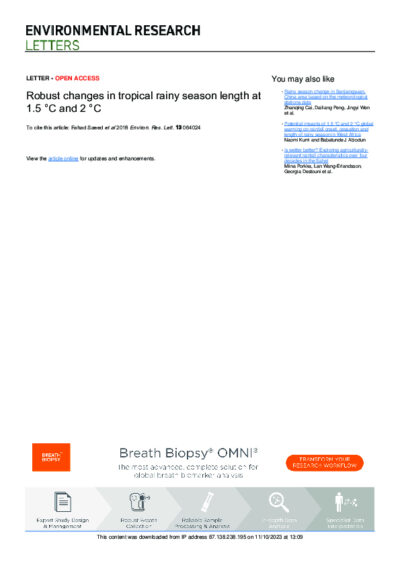Publications
Share

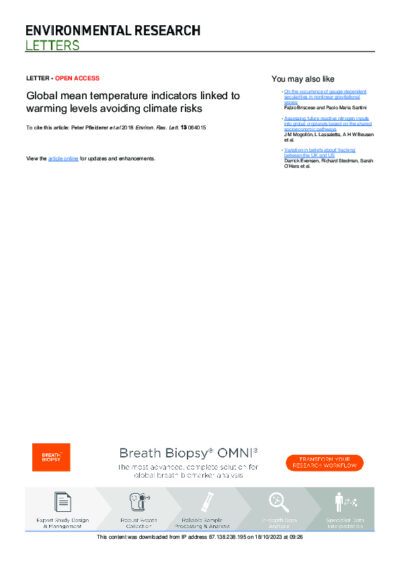
Peer-reviewed Papers
Indicators used to define limits of warming and those used to track the evolution of the Earth System under climate change are not directly comparable.
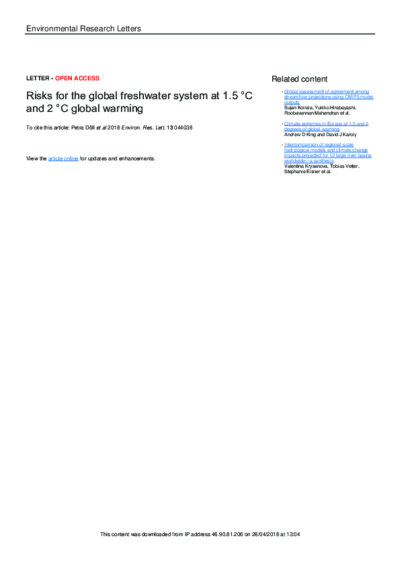
Peer-reviewed Papers
To support implementation of the Paris Agreement, the new HAPPI ensemble of 20 bias-corrected simulations of four climate models was used to drive two global hydrological models in worlds approximately 1.5 °C and 2 °C warmer than pre-industrial.
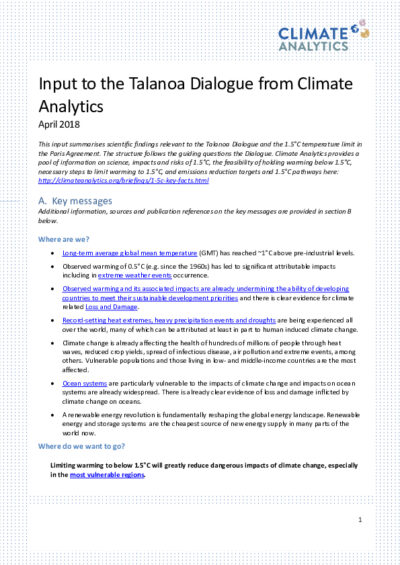
Working Papers
Climate Analytics’ submission to the Talanoa Dialogue summarises the latest scientific findings relating to the 1.5°C limit.
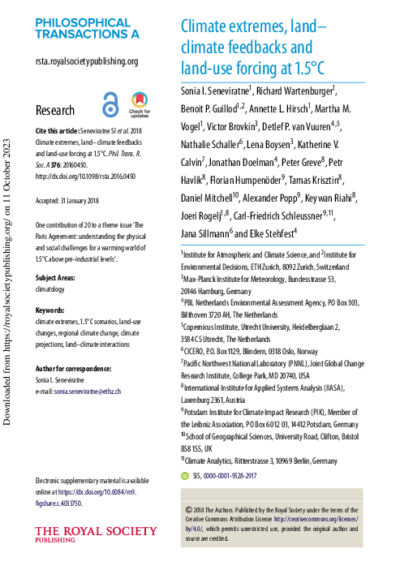
Peer-reviewed Papers
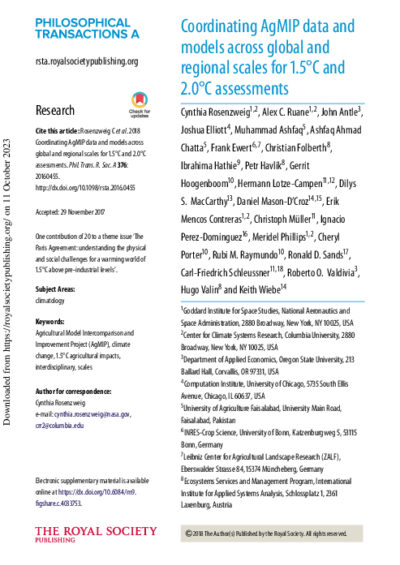
Peer-reviewed Papers
The Agricultural Model Intercomparison and Improvement Project (AgMIP) has developed novel methods for Coordinated Global and Regional Assessments (CGRA) of agriculture and food security in a changing world. The present study aims to perform a proof of concept of the CGRA to demonstrate advantages and challenges of the proposed framework.
